Our children and Steven once fed captured insects to funnel
spiders that inhabit these dwarf Alberta spruces. The spiders were
so quick to pounce that they grabbed every insect thrown to them
before it became tangled in the webbing. However, the webbing had
many tears so we thought that its strands just served as trip
alarms -- Insect lands, line breaks, spider is alerted, pounce!
Now, we've watched how the web works. Here's the story in
pictures. Warning: if you have arachniphobia, DON'T LOOK!
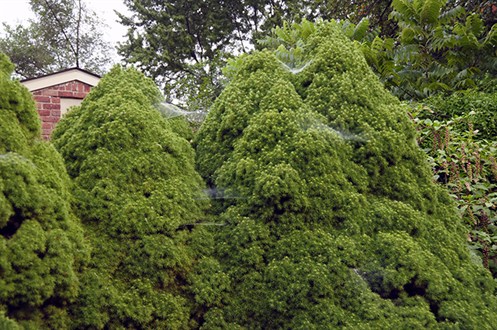
The lacy white drapery over these spruces is a collection
of funnel spider's webs. The inhabitants of the webs eat
everything, "good" and " bad" insects alike.
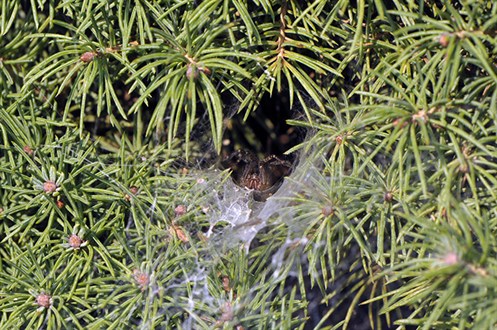
Every web has a silken funnel somewhere along its edge. A
funnel spider lurks there waiting for the prey to come.
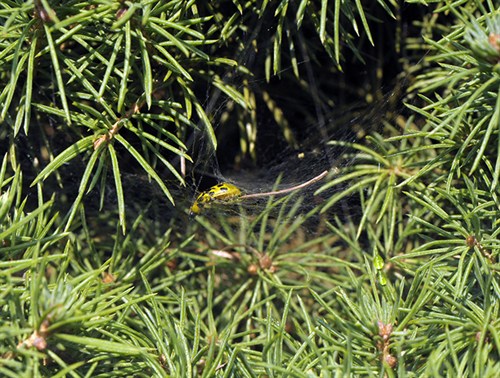
A squash bug is caught in one of the webs. The
webbing seems so thin it appears the bug should be able to break
it.
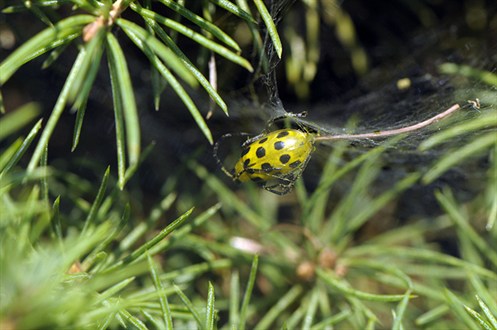
But the more the bug moved, the more entangled it got. Its
legs became pinned to its body after a brief struggle.
Wondering where the spider is? We did too, and figured we were
spooking it. So we turned our lens away and...
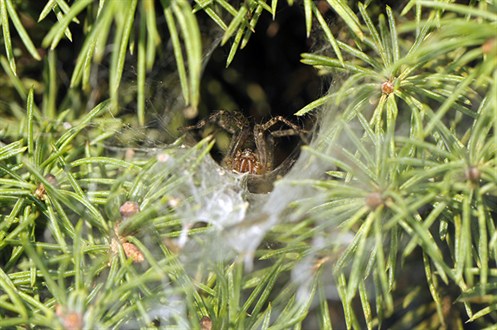
...photographed another spider that was lurking in its
funnel. This spider wasn't spooked but moved toward the camera as
itr advanced toward a bag worm caterpillar (not quite visible
here).
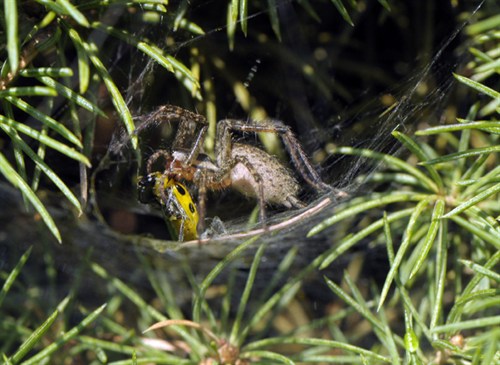
So we turned back to the squash bug now being assaulted
by the resident spider. The spider seemed to be sucking the
life out of the bug which suddenly went limp.
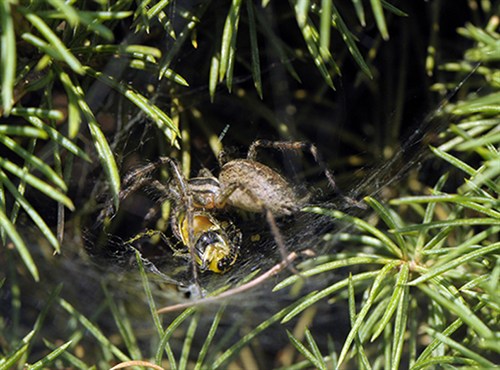
Then the spider cradled the bug and...
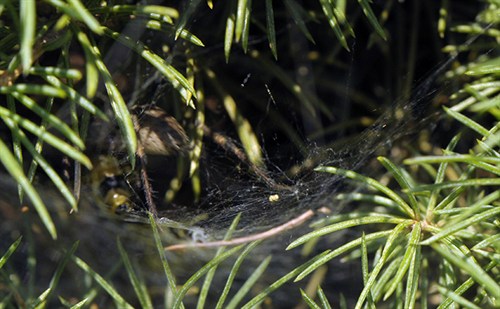
...dashed back into its funnel. Once it was gone, only a
slightly more shredded webbing indicated anything had
happened.
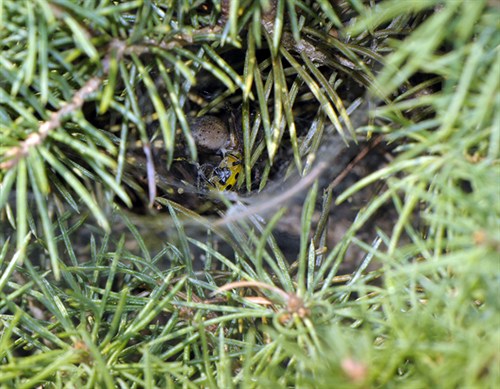
For you photographers: all previous photos were taken in
natural light. This photo was taken with a flash. Steven was hoping
for a reflection off the bug and wished he could snip alll the
needles out of the way. (Janet told him, "Thanks for the heads up,
I won't go researching spruce needle snippers if I see holes in
these spruces.")